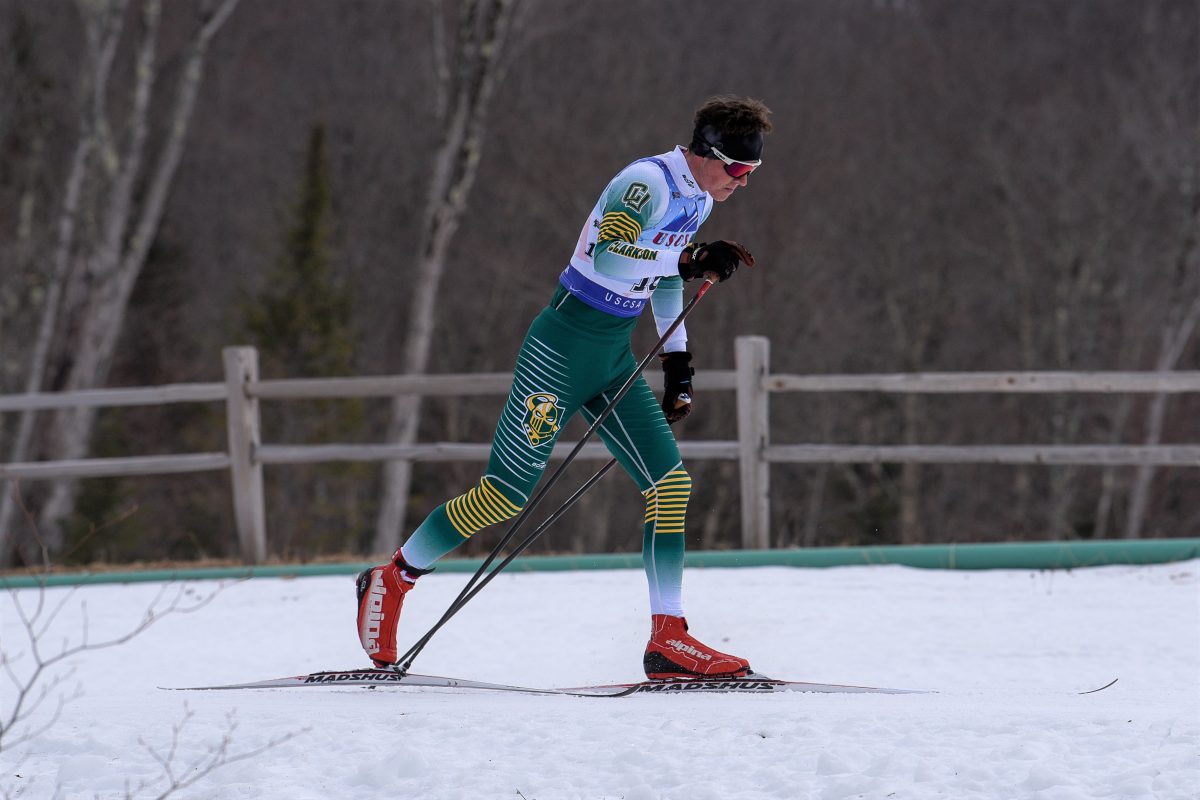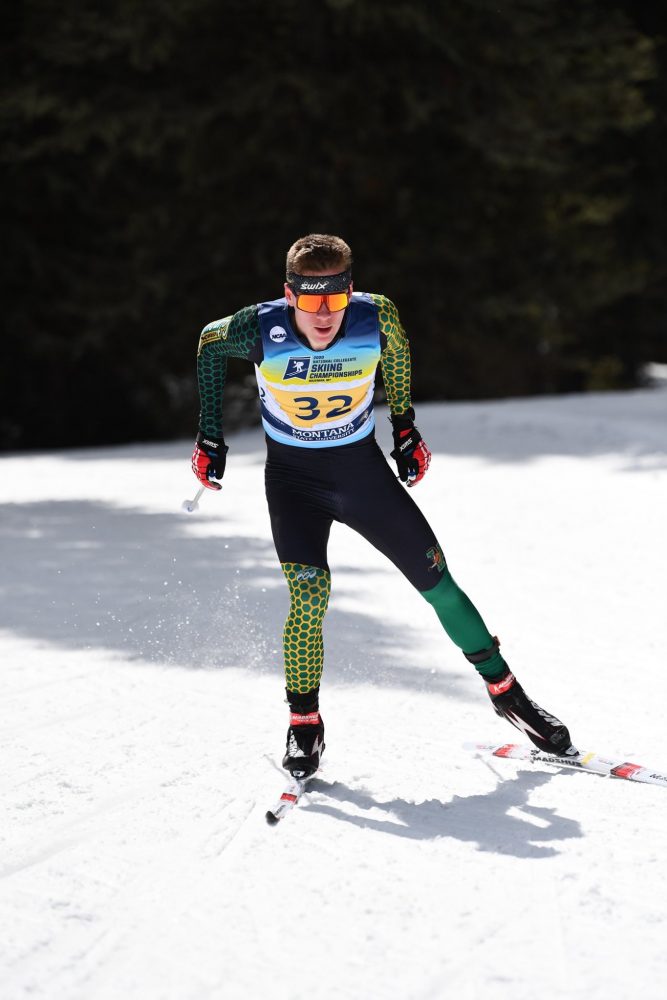Final Part of Three Part Series
Trond, we’re centered so much on developing top racers, so what constitutes a talent in skiing to you?
Talent is so complex it’s hard to define. I think of talent like a puzzle. Some people have parts of one piece, might be lacking one piece, or some having a more of this type. Obviously talent has to do with physical capacity. But it comes down to having the mental, discipline, and desire to do well. There’s also the talent for staying healthy. If you get sick all the time that’s a serious hurdle in the way of getting good. There are just so many pieces to the talent puzzle. But the biggest, most important piece is having the desire to exploit your potential. If you have that, you can make up for most of the other pieces. Without this desire physically capability means little.
Who do you see as up-and-coming talents?
It’s so hard to mention names from the young skiers with them coming from such different backgrounds in the U.S. Some clubs have been working super professionly while others haven’t been working at all. We have some talents so under-prepared it’s scary. In the U.S. talent certainly is a diamond in the rough as we don’t have a way of identifying talent and training them, seeing how they handle a training load.
We have seen some performers at Junior Worlds. Obviously we hope they’ll be somewhere in the pipeline. It is important that younger athletes in the U.S. train better and harder if for no other reason than for the U.S. Ski Team to identify talent. Right now, it’s not that easy.
What are your thoughts on Pete taking over?
It’s going to be good. When I took over, my one stipulation for the U.S. Ski Team was that Pete must be my assistant. I wouldn’t take the job unless Pete would be around, helping the team. In these last four years he has learned a lot about a lot of things.
What Pete didn’t have four years ago was the experience of coaching on the World Cup, which is traveling in Europe, driving questionable roads and speaking funny languages. He’s got this experience now. He’s a fantastic leader. He’s passionate about the sport, and excited about it. He knows everything he needs to know about training, very inquisitive in trying new things and new techniques. He’s very curious about finding new ways of doing things. You couldn’t ask for a better person to head up U.S. skiing and move forward.
How does a top ten World Cup skier like Andy Newell, become a more consistent podium player?
It’s just very small adjustments that need to be made. Most of it comes to developing the confidence you belong there. It’s different if you’re in the driving seat, or if you’re being driven. Racers that make the podium, they’re in the driver seat. They have control over everything. Everyday you have to have the confidence to do what’s right for you. Race day, this a time you have to do things your way, so if you have this confidence, and see through with your race plan, good results just happen.
What about somebody who has been thirtieth once or twice, how do they make the jump to being a Red Group skier?
Consistency. So much comes down to this. For some people, they have a couple top thirty races, but that’s all. It was never meant to be. Others, they have to honestly scrutinize themselves. Don’t be too hard on yourself. At the same time, be honest enough to know what your strengths are and what are your weaknesses.
I think the biggest difference between those who are good and those who are perpetually on the verge is this confidence issue. Those who are confident carry this into everything they do and every decision they make. Sometimes those on the verge are second-guessing their abilities, whether they belong or whether they are doing things right. This guessing around can keep athletes mired around 30th place. Other factors are involved- training, preparation, whatnot. But all things equal, confidence is the biggest difference.
As an athlete, did you personally ever have an experience when you really figured out a piece of the racing puzzle that had been holding you back for years?
Until I turned 22, my brother always beat me running. Every time. I once had a coach who used to tell me I was weak, that I let my brother beat me. I wasn’t weak, don’t think so. I wanted to win, trained for it and raced hard. It was usually very close, one or two seconds between us. But Knut always won. Then, once I beat him. From that day on I had his number. It’s not that he gave up, or he didn’t care – we both went on to run faster than we’d ever had before. But maybe that coach was right. I probably came to accept my brother was better than me. One time beating him, that’s what it took to get over this. After that sunk in, it happened. You can’t suddenly decide ‘I’m going to beat so-and-so.’ But you put all the facts together, training, skis, blah, blah, blah should equal this, but doesn’t. Why not? After a while you put it all together and get to where you need to be.
In regards to training, what takes the most confidence for an athlete to do?
To ski slower on interval days than you want to. The second hardest is to take a day off. Any idiot can get out the door and do more. It requires no amount of finesse to head out the door and train a little too hard for two hours. But to have the confidence to do the right thing at the right time requires a lot of finesse, a lot of thinking.
For most, the next step is this – make the right decisions with training, everyday. Don’t bite off more than you can chew. In the long run, you’ll train more because you won’t have any huge layoffs from training. If you want to train big hour volume then you don’t go out there when you’re feeling poor. For Thobias Fredriksson, 600 hours a year is right. For Marit Bjorgen, it’s 850. It doesn’t really matter what other people are doing, so long as you translate your hours into results. This is what it’s all about.
Will we see you coaching again?
Not for a while. I have no energy to even think about other (coaching) offers. People who’ve asked have gotten a firm “no.†Maybe I’ll help out Claudia, and you’ll see me at some races, but right now I have no energy to coach.
You’re moving to Oberhof, Germany with Claudia. What’s it like there?
I’ve actually only been there twice. Claudia and I have to try and find an apartment there. But it’s East Germany. It could be anything. It could be some rat infested bunker, or it could be some palatial villa.
Last thoughts?
I think its good people are excited for the sport, and that it’s healthy for the sport that people care enough to have opinions willingly to share. I’m glad that there are different forums for people to express themselves. What’s pissing me off is that people never have constructive things to say. When we have success there won’t be a single comment on some of these boards. As soon as there is something negative to say, there are masses running, trying to stab us. That I find, if nothing else, amusing. If you have opinions at least let the sword swing both ways.
Looking back ten years from now, what you hope you’ll take away from these four years with the national team?
That this was an exciting time where we actually accomplished something. Hopefully these four years have changed how people approach skiing; that these four years were an investment where Americans with skiing aspirations really learned what it takes. Ten years from now, that’s fourteen years since we started. We should really start to see results and see some great skiing. That’s what I hope for- to see you guys bring hope the hardware.
Trond thanks for the interview. More importantly, thanks for the last four years.
Torin Koos / 2006/ All Rights Reserved




